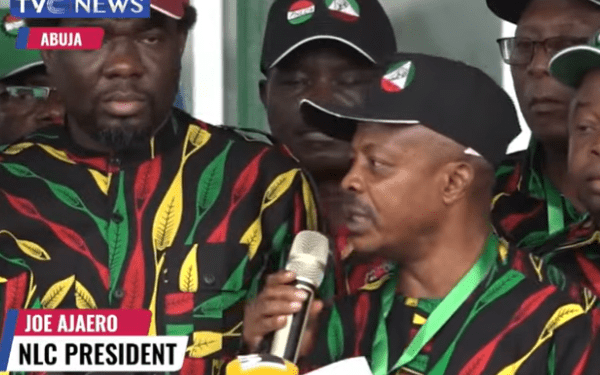Organised labour in Nigeria says it can not guarantee industrial harmony if by the end of May, 2024, a new minimum wage is not in place.
The Nigeria Labour Congress and the Trade Union Congress also gave the federal government seven days to reverse the recent increase in electricity tariff.
Since 1980 when Nigeria joined other nations to commemorate May 1st as Workers Day, it has not looked back.
Every year, workers use the opportunity of the celebration to speak to their challenges and success stories.
This year, it is the first for the Bola Tinubu’s administration, the president was represented here by the Vice President, Kashim Shettima.

The removal of fuel subsidy, the quest for a new minimum wage and the recent increase in electricity tariffs are some of the issues that have pitched organised labour against the government.
But government insists it is a tough decision that must be taken for a better future for the country and its people.
Organised labour conveyed workers dissatisfaction over the increasing economic hardship that is biting hard on the people.
They are even more worried that a new minimum wage is yet to be decided after many months of agitation and had consequently issued a deadline
Organised Labour is equally not pleased with the recent hike in electricity tariff.
But the government says it is not oblivious of the challenges the nation faces and promises to continue to prioritize citizens’ welfare
Organised labour and the federal government certainly have a lot to discuss in the coming days going by the timelines issued by the Nigeria Labour Congress and the trade Union Congress on increased electricity tariff and the clamour for a new minimum wage.





